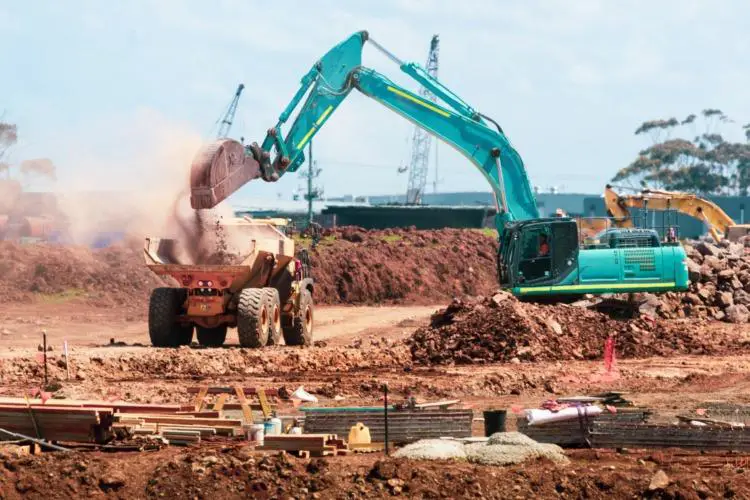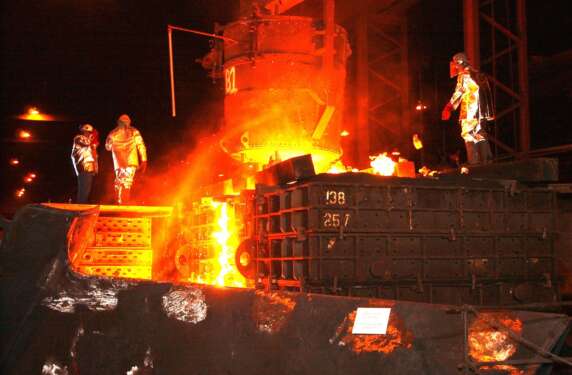- Africa’s new dawn: the rising role of digital and AI in agriculture
- Can Dangote Refinery Transform Africa Energy Ambition
- Gallup Survey: 80 per cent of Kenyan Workers Are Disengaged and Seek New Opportunities
- Madagascar Man Freed from 5KG Tumor After 15-Year Struggle
- How women in Africa are perceived and treated
- Sugar consumption in Kenya to Increase to 1.23 Million Tonnes
- Can Somalia and Turkey Oil deal Bring Change in Somaliland
- Remittances to Kenya dropped to $371.6 million in June, marking a six month low
Browsing: Construction sector
Kenya’s construction industry is projected to grow by up to 3.9 percent this year, according to a new report by the Architectural Association of Kenya (AAK).
The report, dubbed Status of the Built Environment report, AAK however cautions that the growth can only happen if there is no repeat of the strict lock down that were implemented in the country last year after the emergence of the coronavirus pandemic.
The report says growth will be driven by several factors among them a sharp recovery in output levels compared to periods when works were not permitted or were severely restricted in 2020.
“In 2021, the construction industry is expected to improve, assuming a slowdown in COVID-19 cases and recovery in the global economy,” the report notes.
Kenya to start construction of double decker highway as World Bank consents to funding
The report notes that the second quarter of the year, for …
A healthy manufacturing sector is a fundamental path to economic growth and development. It is key in creating employment as it absorbs the unemployed population into productive decent paying jobs that help improve their standards of living. Historical evidence shows how industrialisation has transformed countries such as the United Kingdom, Germany and most recently, China, by growing their economies tremendously and earning them amongst the best performing economies in the world. According to the Global Manufacturing Competitive Index, South Africa, Egypt and Nigeria are leading in the evolution of manufacturing in Africa, while Ethiopia and Morocco are following closely behind; all of them have adopted policies that promote manufacturing development. …
Bamburi Cement has launched an innovative and green construction project in Kenya dubbed “Houses of Tomorrow’ (HoT) in a bid to fulfil its sustainable construction agenda through low-carbon based building solutions.
The projects seek to achieve very low embodied CO2 footprint buildings using low carbon cement-based materials and locally available resources.
The project involves careful selection, design and use of materials which leverage low carbon standards in the overall construction, and especially application of near zero embodied energy concrete designed by incorporating low carbon content cement. Some of the cement products to be used for this construction project feature a mix of Bamburi Cement’s products Powermax and Nguvu pozzolanic cements for concrete works. Fundi masonry cement, a low carbon cement, will also be used for mortar and plaster works.
The project launched by Bamburi’s parent company LafargeHolcim, is ongoing in several countries on each continent.
Commenting on the new building …
Twiga Cement (TPCC on the Dar es Salaam Stock Exchange) on Friday, May 22, 2020, released its Annual Report and audited accounts for the year ended 2019. Revenues grew 6% and net profits rose 5% in 2019 from the year earlier. Dividends were steady at TZS 290 per share for the third year running.
Twiga is the dominant cement company in Tanzania. It is the 19th-biggest company overall in East Africa by market value and the fifth-biggest in Tanzania, according to the latest African Business rankings.
The company is a subsidiary of German multinational Heidelberg Cement, which owns 69.3%. The other 30.7% trades on the DSE and is owned by thousands of small shareholders and investment funds.
Twiga has a huge competitive advantage over the other cement industry players in Tanzania, because its production facilities are on the outskirts of Dar es Salaam. Cement is heavy and expensive …






